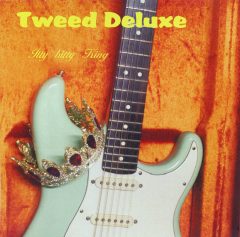It's advisable to not read film reviews beyond the headlines if even that, prior to buying a ticket and waiting for the lights to dim; being delighted or disappointed with a film after walking into the theater with merely reasonable expectations--rather than desires jacked up and exceeding sanity with big media hype. Like a film, hate it, or give a slight, impassive shrug. the experience doesn't feel like you've been manipulated, pavloved so to speak, into craving a sweet and worthless piece of pop culture hype. And if you loathe the thing you've viewed, you are at least allowed to walk away from the theater feeling only disappointed and not betrayed by a noxious cabal of scheming film critics. And so, let me say that Black Panther, a new Marvel release presently annihilating competing films at the box office and the recipient of ludicrous amounts of praiseworthy hyperbole, gets a shrug of the shoulders, a rock solid "meh", a half-nod, a quick exit to the dustbin of memory. So much is read into this film being a harbinger of a new social movement, a religious event, an event signaling the movement of history's tectonic plates that it would seem apparent that what we have, among other undisclosed symptoms, is the jargon-ated babble of movie critics desiring to effective social agents and diagnosticians of the dialectic.
They don't want to be movie critics, they want to be public intellectuals, they want to be taken seriously. A couple of things at work here, the first being that I, comic reader and superhero movie fan among many other high and low culture obsessions, have become a bit bored with the formula Marvel is putting forth. While the movie, as with all their product, is a technical marvel and moves along gracefully, the narrative, the emotional connections, the dramatized philosophies argued herein, do not rise above what's come before in Marvel's increasingly crowded gallery. Yes, they do try to address matters of race and privilege, but the context here is too ridiculous and "safe" for any urgency to get across besides obvious points for the plot to turn. DCU got it right in Man of Steel in which the catastrophic release of unchecked superpower destroys the city where the combat took place, all in the name of two causes that had well-articulated, if too convenient rationales. The cardboard patriotism of Captain America, in the MCU, is transferred to the amazingly un-charismatic nationalism of Prince T'Challa /Black Panther. And so, it goes.
Quite despite the claims that BP is a game changer or brings things to the next level so far as their connected universe goes, I found it a bit tedious, albeit a bright, shiny, noisy kind of tedium. For whatever reason, there is a herd mentality among film critics when it comes to certain motion pictures, and what has been written and said about Black Panther so far regarding judging its value as a distinct, different and arguably inspired bit of filmmaking loses intellectual rigor and floats too easily to the helium heights of hyperbole. It begins to resemble Resurrection theology more than anything else; that it's being argued that a fantasy epic re-frames, redirects and clarifies the discussion of and policy decisions about what seems intractable evils in our society underscores how pathetic we've become. A Marvel motion fantasy gets credit for clarifying and grounding our discussion of racial injustice and violence while Kathy Bigelow’s fact-based Detroit, an unflinching recreation of the causes and conditions behind the worst race riot in American history, is given a brief flurry of positive reviews and then quickly shuffled out of the spotlight. That ought to have been the movie, of all movies, that would have sparked a brutally frank discussion of the pathetic state of race relations in this country. But it wasn't. This is pathetic, grimly pathetic. We cannot even pretend that we're going to talk about race in this country unless it's framed by a glitzy and shallow fantasy. With appropriate respect to Black Panther director Ryan Coogler, who ably moves the movie through a script that suffers from attention deficit--the story hopscotches around locations in real- time parallel developments and an over-reliance on flashbacks, this project waddles when it should run, races at times when it needs to resonate, overstays in expository scenes that cry out for more efficient writing.







